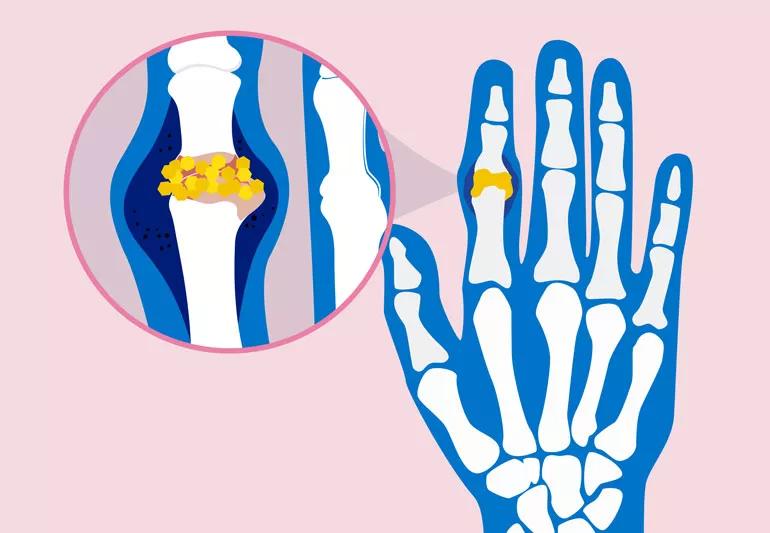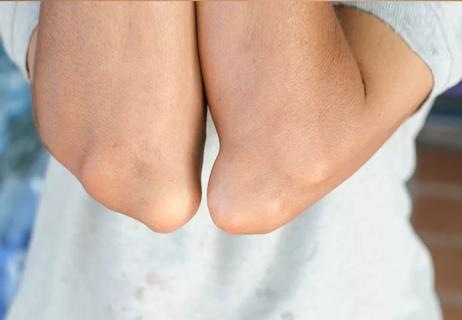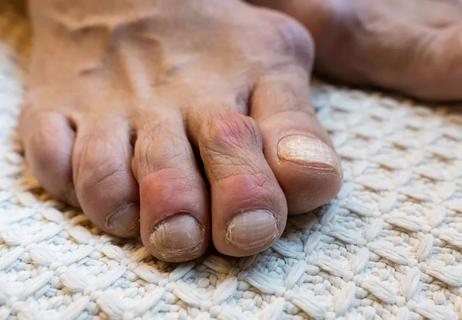The short answer from a rheumatologist

Q: I’ve had attacks of gout in my big toe. Now, I’m getting joint pain and swelling in my hands. Can you get gout in your hands?
Advertisement
Cleveland Clinic is a non-profit academic medical center. Advertising on our site helps support our mission. We do not endorse non-Cleveland Clinic products or services. Policy
A: Gout is a painful form of arthritis that usually affects joints in the lower body, primarily the big toe, but also the ankle or knee. But gout attacks have been documented in almost every joint, including the fingers, wrists and elbows.
Attacks of gout happen in people with high levels of uric acid in their blood. Uric acid is a byproduct of natural processes in the body. Normally, it passes through the kidneys and leaves the body in urine. Some people have an inefficient system for getting rid of uric acid and it builds up in the blood. When the level goes above 6.8 milligrams per deciliter (mg/dL), it can leave the bloodstream and settle in joints. From there it can break down and release crystals into the joint space.
These crystals are the cause of the red, hot and swollen joint of a gout attack. Short-term treatment is aimed at reducing the symptoms, often with nonsteroidal anti-inflammatory drugs (NSAIDs) or the drug colchicine. The long-term goal is to prevent subsequent attacks by lowering the level of uric acid in the blood and keeping it consistently below 6 mg/dL. This is done with medication, such as allopurinol (Zyloprim®) or febuxostat (Uloric®)
Once a gout attack is over and you feel better, it’s easy to forget to take uric-acid lowering medication. But you need to continue. Anyone who’s had more than one gout attack should see their doctor to get their uric acid levels tested and make sure they’re are on the correct dose of a uric-acid lowering medication.
Advertisement
If you take the medication faithfully, future gout attacks can be prevented.
— Rheumatologist Chad Deal, MD
Advertisement
Learn more about our editorial process.
Advertisement

What you should and shouldn't eat to avoid flare-ups

Learn how this gout treatment can improve your quality of life

The short answer from a rheumatologist

Most recommended precautions center around minimizing bruising or swelling

Even one drink can have an impact on your cognitive function leading to slurred speech, blurred vision and impaired memory

Understand who may (and may not) benefit

Type 2 diabetes isn’t inevitable with these dietary changes

Applying a hot or cold compress can help with pain